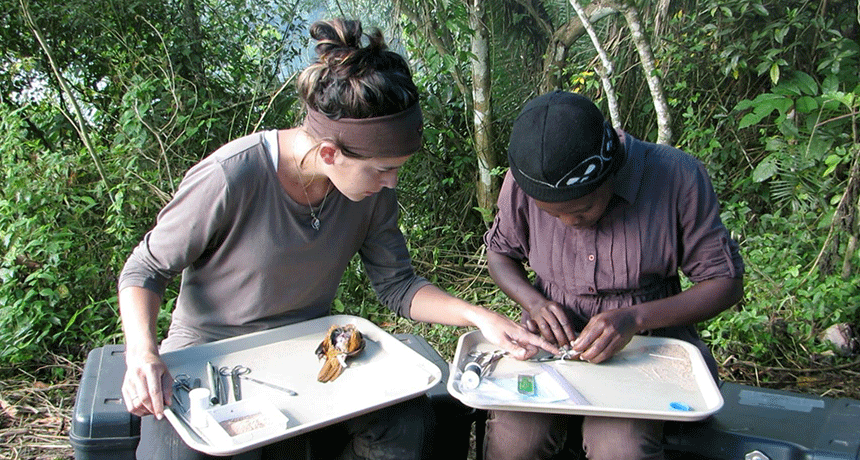Questions for ‘Scientists probe new ways to control malaria’

Holly Lutz (left) works with a colleague in Uganda to collect malaria parasites from birds.
Courtesy of Holly Lutz
To accompany feature “Scientists probe new ways to control malaria”
SCIENCE
Before Reading:
1. What is malaria?
2. How does malaria spread and in what parts of the world are people most likely to pick it up?
During Reading:
1. How many people die of malaria each year (based on 2015 numbers) and what age group is at greatest risk of becoming infected?
2. What causes malaria and what role do mosquitoes play in spreading it?
3. Why are bed nets useful in fighting infections?
4. According to this article, what role does evolution play in making malaria hard to quash?
5. After making a “family tree” for malaria, which host appears to have first become infected to malaria parasites?
6. What is the difference in malaria infection rates in highland regions and lowland (sea-level) countries?
7. After an El Niño cycle, what happens to malaria infection rates?
8. What are three ways that human changes to how the land might foster increases in rates of malaria?
9. Why does Rickard Ignell argue that knowing about non-human malaria hosts could help knowing how to attack the malaria parasite?
After Reading:
1. If mosquitoes are key to spreading malaria, what kinds of programs would you expect to be most useful in controlling rates of infection? Do some research to come up with three malaria-control strategies for people in a community where infection rates are typically high. Now put together a poster, report or presentation to share with your classmates describing what this community should do.
2. You have just been named the malaria-control officer for a country that suffers high rates of the disease. Name at least five kinds of researchers that you would recruit to help in your control programs. Explain why you selected each and what role they would play.
MATHEMATICS
1. If more than seven in every 10 people who die from malaria are children and 429,000 people died from the disease in 2015, what’s the maximum number of adults that could have died from malaria that year? Show your work.
2. According to the article, how many people died from malaria in 2000? If the rate of disease dropped by two percent in every year between then and 2015, how many people would have died from malaria in 2005? How many in 2010? Show your work.